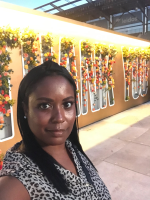In advance of the coming Juneteenth holiday, the White House held a summit Monday during which officials laid out what they say are areas of progress on Black community initiatives. President Biden signed the holiday into federal law in 2021.
Speakers at the summit represented a range of federal agencies and ancillary groups including the Small Business Administration (SBA), Centers for Medicare/Medicaid (CMS), and the Office of Gun Violence Prevention, and discussed topics including gun violence, healthcare equity, and small business creation, primary concerns for Baltimore’s Black residents.
A report released this week by the FBI stated that violent crime dropped nationwide by more than 15 percent in the first three months of 2024 compared to 2023, and the White House is highlighting cities like Baltimore that are experiencing historic decreases in homicides. According to the Baltimore Police Department, the city recorded 71 homicides by the end of May this year, compared to 114 over the same time in 2023. Baltimore recorded 117 non-fatal shootings compared to 246 at May’s end in 2023.
“Last year we saw a 13.5 percent reduction in homicides, the steepest decline in American history,” said Greg Jackson, deputy director of the White House Office on Gun Violence Prevention, who is also a gun violence victim. “In major cities those numbers are even higher, including a 41 percent reduction in Baltimore.”
Jackson credits the administration's multi-pronged approach to reducing gun violence, including the use of community violence intervention, creating the 988 mental health hotline, closing gun stores, and strengthening victim support.
“The reason we're seeing the tremendous reductions now is because the dollars invested in 2021 and 2022 are starting to scale these programs, such as Safe Streets, in Baltimore,” Jackson said. “We’ve also seen increased funding in very specialized law enforcement investments like crime gun intelligence centers.”
Violence reduction advocates in Baltimore applaud the federal funding, which has assisted in the homicide decline while also acknowledging the larger scope of the problem.
“The Biden administration has offered funding and support, but we need long-term solutions, not just a mix of grants and funding in the immediate,” said Dr. Tyrone Powers, a Baltimore-based criminal justice and crime-reduction specialist. “We are seeing some reduction, some impact. You can hear it from some of the voices in the street. The funds and impact we are seeing is stopping the beef, but it’s not stopping the problem overall.”
At the summit, Officials from the Department of Health and Human Services said they expanded their focus to health care access and equity with Medicare and Medicaid services.

“The Biden administration has further strengthened the ACA (American Coverage Act) marketplace and Medicaid coverage, making it more affordable than ever and ensuring access to critical services like primary care, behavioral health, and reproductive health and maternity care,” said Chiquita Brooks LaSure, administrator for the Centers for Medicare and Medicaid (CMS.)
Wellpoint, Maryland’s second largest Medicaid managed care organization, has 300,000 members with one-third of the membership in Baltimore city and county.
“We are working on several initiatives to address health equity for our members including centering members' voices and increased community engagement with members and healthcare providers,” said Wellpoint President Dr. Darrell Gray. “We work on incentivizing our healthcare providers to close the gaps in quality of care, while also aligning with community-based organizations to address health outcomes.”
Gray points to the Green and Healthy Homes Initiative, a Wellpoint community-based partner which helps members improve home air quality to proactively address asthma concerns. According to the Maryland Health Services Review Commission, 87 percent of Baltimore City emergency room visits in 2019 were by Black or African American children, and 85 percent of those visits were for children with Medicaid coverage.
In addition to addressing health outcomes, the White House outlined plans to improve economic outcomes for Black entrepreneurs.

“In the midst of this economic recovery there’s been a small business boom,” said Small Business Administrator Isabel Casillas Guzman. “In the Black community you’re seeing the highest level of entrepreneurship in decades and a doubling of the number of households with small businesses from 5 percent to 11 percent of all households.”
Though small business advocates acknowledge continued challenges with application and approval processes for federal, state, and municipal funding and loans, according to Brookings Institution research in 2022, the Baltimore-Columbia-Towson metro area registered 2,755 Black businesses, which equates to 5 percent of employer businesses. These businesses created an average of 13 jobs per company, with employee salaries averaging just over $41,000. The report also showed a new trend in online microbusinesses, with Black ownership rates of 26 percent.
Baltimore officials say assistance and encouragement for entrepreneurship comes from programs such as Downtown Boost, an initiative of the Downtown Partnership of Baltimore, which supports Black-owned retail businesses. At last year's grand re-opening of Lexington Market, Mayor Brandon Scott celebrated having over 50 percent of Black-owned businesses among the more than 40 food stalls and vendors.




